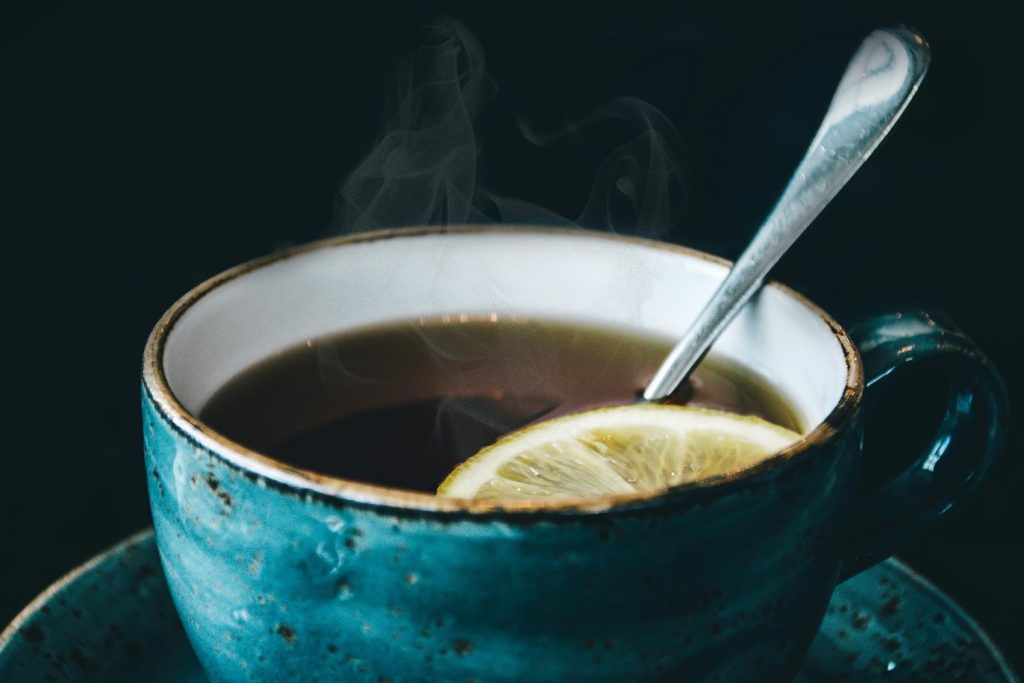Tea has been consumed for centuries, not only as a refreshing beverage but also for its health benefits. While traditional teas such as black, green, and white teas are made from the leaves of the Camellia sinensis plant, herbal teas are different in that they are made from a variety of dried flowers, fruits, herbs, and spices. Herbal teas offer a caffeine-free alternative to traditional teas and are widely celebrated for their healing properties. In the pursuit of wellness, herbal teas have become an integral part of many people’s daily routines, offering a natural and holistic way to support the body and mind.
This blog post will explore the rich history of herbal teas, their various types, and the benefits they offer for wellness.
A Brief History of Herbal Teas
The use of herbs in beverages dates back thousands of years. Ancient civilizations such as the Egyptians, Chinese, and Native Americans brewed herbal teas for both medicinal and ceremonial purposes. In traditional Chinese medicine (TCM), herbs were used to restore balance in the body, with different herbal teas prescribed based on the individual’s needs. Similarly, Ayurveda, the ancient system of healing in India, used herbal infusions as remedies for a variety of ailments.
Throughout history, herbs have been revered for their ability to promote health and well-being. Whether used to soothe digestion, calm the mind, or treat illnesses, herbal teas have always been a natural remedy. Today, with the rise of wellness movements that emphasize holistic living, herbal teas are being rediscovered for their vast array of benefits.
Types of Herbal Teas
The world of herbal teas is diverse, with countless varieties to choose from, each offering unique flavors and wellness benefits. Some of the most popular herbal teas include:
- Chamomile Tea Chamomile tea is perhaps one of the most well-known herbal teas, celebrated for its calming effects. Derived from the daisy-like flowers of the chamomile plant, this tea has been used for centuries to promote relaxation and improve sleep. Chamomile contains compounds that bind to receptors in the brain, acting as a mild tranquilizer and sedative. Its soothing properties make it a popular choice for people dealing with insomnia, stress, and anxiety.
- Peppermint Tea Peppermint tea is made from the leaves of the peppermint plant and is famous for its refreshing and cooling flavor. It is often used to support digestion, as peppermint helps relax the muscles of the gastrointestinal tract, alleviating bloating, gas, and indigestion. Peppermint tea is also known for its ability to ease headaches and migraines, particularly when the pain is linked to tension or digestive issues.
- Ginger Tea Ginger tea is known for its warming and spicy flavor, as well as its powerful anti-inflammatory and antioxidant properties. It is commonly used to aid digestion, reduce nausea, and relieve symptoms of motion sickness. Ginger tea is also a great remedy for colds and sore throats, as it helps boost the immune system and reduce inflammation. For those who suffer from chronic pain conditions like arthritis, ginger tea can provide relief due to its anti-inflammatory effects.
- Rooibos Tea Originating from South Africa, rooibos tea is made from the leaves of the red bush plant. It is naturally caffeine-free and rich in antioxidants such as aspalathin, which help protect the body from oxidative stress. Rooibos tea is known to support heart health, improve circulation, and promote healthy skin. Additionally, it has anti-allergenic properties and is often used to ease symptoms of allergies and asthma.
- Hibiscus Tea Hibiscus tea is made from the vibrant red flowers of the hibiscus plant and has a tart, cranberry-like flavor. This tea is packed with antioxidants and has been shown to lower blood pressure and cholesterol levels. Hibiscus tea is also rich in vitamin C, which supports the immune system, helps fight inflammation, and promotes healthy skin. It is a refreshing, hydrating beverage that is often consumed cold as a natural alternative to sugary drinks.
- Lemon Balm Tea Lemon balm, a member of the mint family, has a subtle citrus flavor and is renowned for its calming properties. It is often used to reduce stress, improve mood, and promote restful sleep. Lemon balm tea can also help with digestive issues, particularly indigestion and bloating. In addition to its mental health benefits, lemon balm tea has antiviral properties, making it a useful remedy during cold and flu season.
- Echinacea Tea Echinacea tea is derived from the Echinacea plant, a well-known herb in natural medicine. It is commonly used to boost the immune system and shorten the duration of colds and other respiratory infections. Echinacea tea is rich in antioxidants and has anti-inflammatory properties, making it a popular choice for those looking to strengthen their body’s defenses against illness.
- Lavender Tea Lavender tea, made from the fragrant purple flowers of the lavender plant, is often used for its calming effects. This tea is known to reduce stress and anxiety and improve sleep quality. Lavender’s soothing aroma also makes it a great remedy for headaches and migraines. Additionally, lavender tea has anti-inflammatory properties that can aid in digestion and relieve stomach discomfort.
- Dandelion Tea Dandelion tea, made from the roots and leaves of the dandelion plant, is often consumed for its detoxifying properties. It supports liver health by promoting the production of bile, which helps the body eliminate toxins. Dandelion tea is also a natural diuretic, which can help reduce water retention and bloating. Additionally, it is rich in vitamins A, C, and K, as well as minerals like calcium and iron.
Join Our Mailing List
Register now to get our hints and tips newsletter directly to your inbox
Health Benefits of Herbal Teas
Herbal teas offer a wide range of benefits for overall wellness, both physical and mental. Here are some of the most significant health advantages of incorporating herbal teas into your daily routine:
1. Stress Relief and Relaxation
One of the primary benefits of herbal teas is their ability to promote relaxation and reduce stress. Teas such as chamomile, lavender, and lemon balm contain compounds that have a calming effect on the nervous system, helping to lower stress levels and alleviate anxiety. These teas can be especially helpful in the evening, as they can prepare the mind and body for a restful night’s sleep.
2. Improved Digestion
Many herbal teas are known for their digestive benefits. Peppermint, ginger, and fennel teas, for example, help soothe the stomach and alleviate common digestive issues such as bloating, gas, and indigestion. Drinking herbal teas after meals can promote better digestion and prevent discomfort.
3. Enhanced Immune Support
Herbal teas like echinacea, ginger, and hibiscus are rich in antioxidants and compounds that boost the immune system. These teas can help the body fend off infections, shorten the duration of illnesses, and reduce the severity of symptoms. Regular consumption of immune-boosting herbal teas can provide extra support during cold and flu season.
4. Antioxidant Properties
Herbal teas are abundant in antioxidants, which play a crucial role in protecting the body from free radical damage. Antioxidants help neutralize harmful molecules that can contribute to chronic diseases, including heart disease, cancer, and neurodegenerative conditions. Rooibos, hibiscus, and dandelion teas are particularly high in antioxidants, making them excellent choices for overall health and longevity.
5. Weight Management
Some herbal teas, such as green tea, dandelion tea, and ginger tea, may aid in weight management by boosting metabolism and promoting fat burning. Additionally, certain teas like peppermint and hibiscus can reduce cravings and improve digestion, helping individuals maintain a healthy weight. The hydrating nature of herbal teas also makes them a great low-calorie option for those looking to reduce their intake of sugary beverages.
6. Detoxification
Herbal teas, particularly those like dandelion and milk thistle, are known for their detoxifying effects on the liver and kidneys. These teas help the body eliminate toxins, improve liver function, and support overall detoxification processes. Drinking detoxifying herbal teas regularly can help the body cleanse itself and maintain optimal health.
7. Mental Clarity and Focus
Certain herbal teas, such as ginkgo biloba and rosemary, are believed to enhance cognitive function and mental clarity. These teas can improve concentration, boost memory, and support brain health. The mental benefits of herbal teas are particularly appealing for those looking to enhance focus without the jitters that come with caffeine-based beverages.
How to Incorporate Herbal Teas into Your Routine
Incorporating herbal teas into your daily routine is simple and enjoyable. Here are a few tips to make the most of their benefits:
- Start Your Day with a Refreshing Blend: Begin your morning with a cup of ginger or peppermint tea to wake up your senses and support digestion.
- Midday Boost: Opt for a cup of rooibos or hibiscus tea to hydrate and replenish your energy levels without the need for caffeine.
- Evening Wind Down: Chamomile, lavender, or lemon balm teas are perfect choices for relaxing before bedtime, helping you unwind and sleep soundly.
- Experiment with Flavors: Explore different blends and experiment with combining herbs to create your own custom tea that addresses your wellness needs.
Conclusion
Herbal teas offer a world of flavors and healing properties that can enhance wellness in many ways. Whether you’re looking to reduce stress, improve digestion, support your immune system, or simply enjoy a soothing beverage, there is an herbal tea for every need. With their natural ingredients and therapeutic benefits, herbal teas provide a simple, yet powerful, addition to any wellness routine. So why not brew a cup and start experiencing the rejuvenating effects of herbal teas today?




